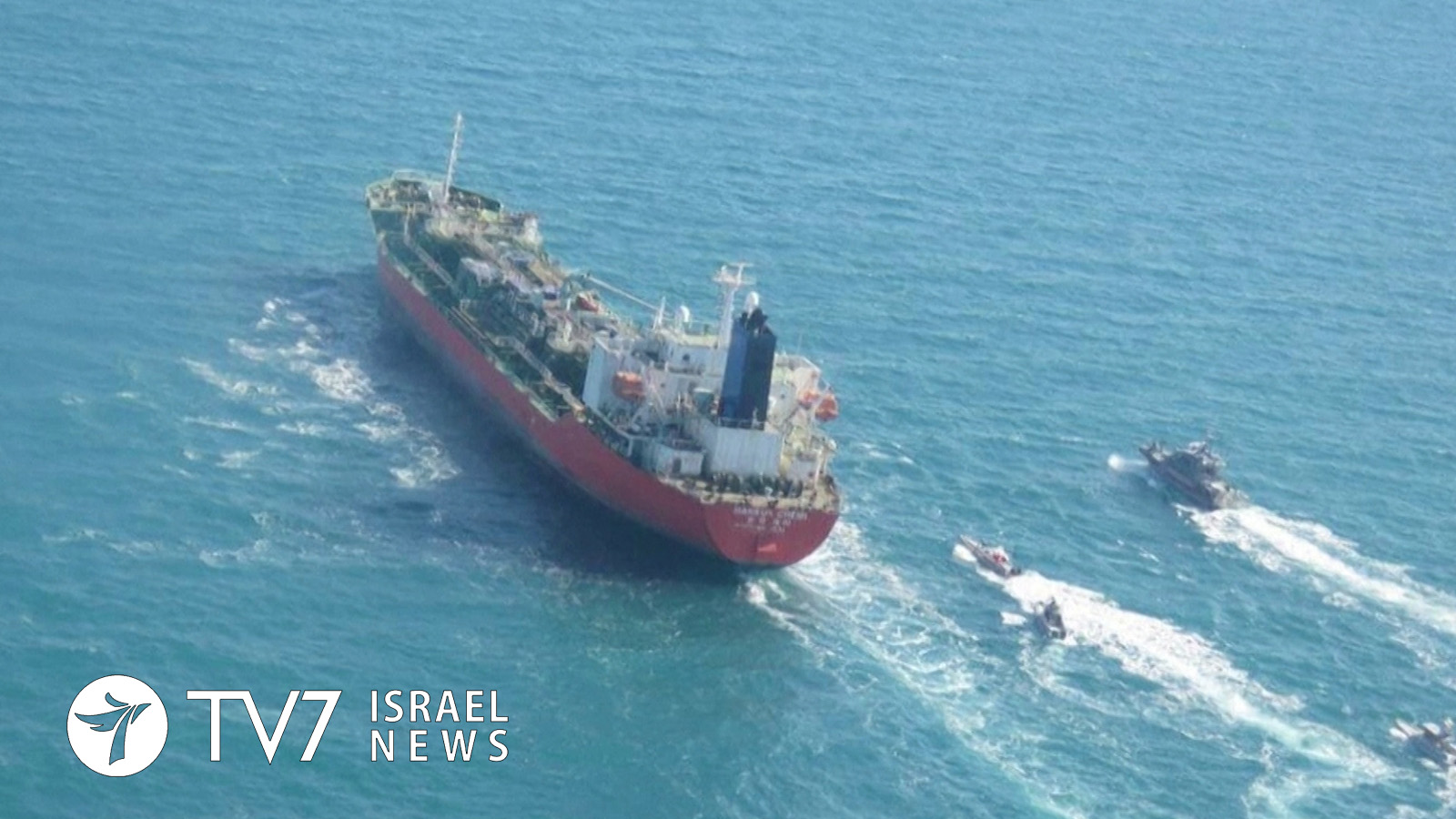Iran’s Islamic Revolutionary Guards Corps (IRGC) seized a South Korean-flagged tanker in Persian Gulf waters and took custody of all crew, amid tensions between the two countries over the freezing of Tehran’s funds in Seoul’s banks due to Washington’s sanctions against the Islamic Republic.
Photos of IRGC speed boats escorting the Hankuk Chemi vessel were published by Iran’s semi-official Tasnim news agency, which reported that the cargo was 7,200 tons of ethanol and detained crew members included nationals of South Korea, Indonesia, Vietnam and Myanmar. According to state television, the tanker is being held at Iran’s Bandar Abbas port city.
Seoul confirmed the seizure of the chemical tanker by Iranian authorities in the waters off Oman, and demanded the immediate release of the ship and its 20 crew members.
The Dryad Global maritime security firm said on its website the chemical tanker had “likely been detained by Iranian forces” in the Strait of Hormuz while inbound to Fujairah in the United Arab Emirates. According to the British Ambrey firm, the Hankuk Chemi is owned by DM Shipping Company and had set sail from the Petroleum Chemical Quay in Jubail, Saudi Arabia. Iran ramped up international tensions in the world’s busiest oil waterway last year by seizing British-flagged Stena Impero tanker two weeks after a British warship had intercepted Iran’s Grace 1 tanker off the coast of Gibraltar.
South Korean Foreign Minister Kang Kyung-wha announced today that diplomatic efforts are underway to secure the tanker’s release. She told reporters she had first responded to her counterparts in Iran on Monday, and that the ministry is now in talks with officials in Tehran and in Seoul to resolve the issue.
Several Iranian media outlets reported that the Guards navy captured the vessel for contaminating the Gulf with chemicals. “According to initial reports by local officials, it is purely a technical matter and the ship was taken to shore for polluting the sea,” Iranian Foreign Ministry Spokesman Saeed Khatibzadeh was cited as saying by state television.
The United States condemned Iran’s actions and insisted the tanker be released immediately.
“The regime continues to threaten navigational rights and freedoms in the Persian Gulf as part of a clear attempt to extort the international community into relieving the pressure of sanctions,” said a State Department official.
The U.S. Navy’s Bahrain-based Fifth Fleet is aware of the incident and is monitoring the situation, commented Spokeswoman Commander Rebecca Rebarich.
South Korea’s foreign ministry is now reviewing whether Vice Foreign Minister Choi Jong-kun will visit Tehran on Sunday as had been previously scheduled. Tehran government officials claimed on state television that the slated discussions would be centered on Iran’s demand that $7 billion in frozen funds be released.
The Tehran Times newspaper reported last Sunday that Iran was hoping to negotiate an agreement to use the frozen funds to “barter” for coronavirus vaccine doses and other commodities. The South Korean Foreign Ministry did not have an immediate comment on that report; and when asked about Iran’s intentions for the frozen assets, Foreign Minister Kang only stressed the importance of safety of the ship’s crew.
The United States reimposed sanctions on Iran in 2018 after Washington withdrew from the Joint Comprehensive Plan of Action (JCPOA) nuclear deal between Iran with six major powers in 2015. Under terms of the pact, the Islamic Republic had agreed to curb atomic development in exchange for the lifting of punitive economic measures enacted to prevent it from acquiring weapons capability.
The U.S. – and most notably Israel – had long accused the Islamic Republic of violating the JCPOA.
Iran has retaliated for the reimposition of U.S. sanctions by abandoning the deal in stages, particularly its self-declared resumption of 20% uranium enrichment at the underground Fordow nuclear facility yesterday. The move will undoubtedly complicate the potential rejoining of the JCPOA by the incoming administration of U.S. President-elect Joe Biden, who previously stated such a step was under consideration on condition that Iran reassume compliance with the 2015 accord.
